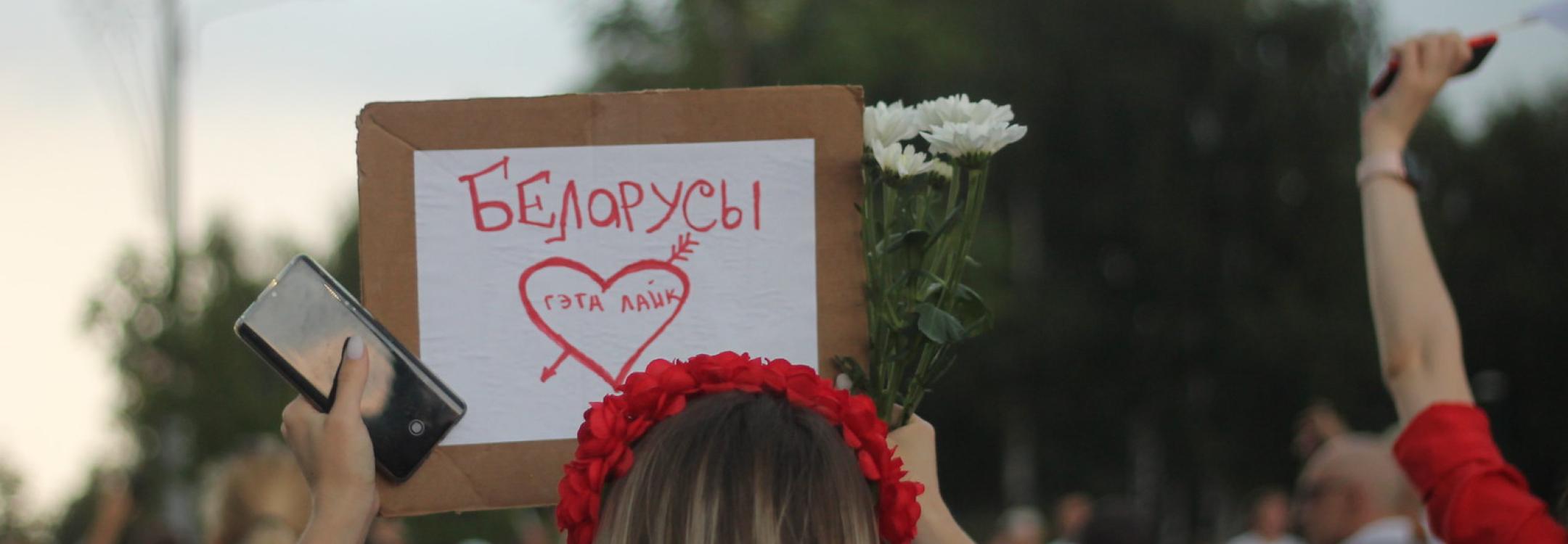
Tens of thousands of people marched in Belarus on Sunday to protest the rigged presidential election one month ago. In Hong Kong, Lebanon, Iraq and Colombia – but also in France and the United States – people have been taking to the streets to call for just and inclusive societies or safe responses to the COVID-19 pandemic.
Gathering with others in peaceful assembly is a fundamental right. Together with freedom of expression and freedom of association, peaceful assembly is the foundation of participatory societies, based on democracy and the rule of law.
However, these recent demonstrations have often met with violent responses from the authorities. In Belarus, thousands of demonstrators have been arrested and detained. There have also been hundreds of allegations of torture or ill-treatment, including against children.
In other countries, demonstrators have been beaten or injured. Demonstrations have been violently dispersed by security forces using weapons such as flash grenades or rubber bullets. There have also been mass arrests.
Today, on the International Day of Democracy, it is more important than ever to remind ourselves of the vision set out in the Universal Declaration on Human Rights that “the will of the people is the basis for the authority of the government”.
States may impose restrictions on the right to peaceful assembly in some circumstances, such as to protect national security, public safety, public order or public health. However, these restrictions must be necessary, legal and proportionate to the aims they seek to achieve.
Torture can never be justified under any circumstances. It is absolutely prohibited. That is why Michelle Bachelet, the United Nations High Commissioner for Human Rights, has called for allegations of torture and ill-treatment by security forces in Belarus to be documented and investigated, “with a view to bringing the perpetrators to justice”.
In its recent General Comment, the United Nations Human Rights Committee stressed that law enforcement must respect and uphold the right to peaceful assembly without discrimination. The Committee stated that assemblies could be dispersed only in exceptional cases and force should be avoided. Further, law enforcement should seek to “de-escalate situations” and there should be a presumption in favour of considering assemblies as peaceful.
Policing assemblies requires a careful use of powers. It also requires proper planning, equipment and training. Police are duty-bound to meet certain standards. Force may sometimes be legitimate but it should never be excessive: only minimum force can be used and only when strictly necessary. No force is permissible on an arrested person. Firearms should never be used. Non-lethal weapons should be employed only under strict conditions.
The use of force to police assemblies, including the use of weapons, should be closely monitored. Any excessive use of force should be immediately investigated and sanctioned.
The right to peaceful assembly as “an individual right that is exercised collectively” lies at the crossroads of human rights, democracy and the rule of law. Upholding the right to peaceful assembly relies on strengthening police professionalism and accountability, as well as ensuring strategies to prevent torture and ill-treatment. In doing so, we can all freely contribute to building the just, peaceful, inclusive and representative societies we want to live in.